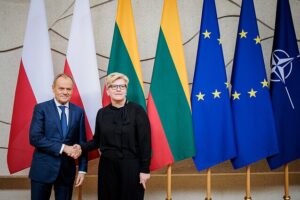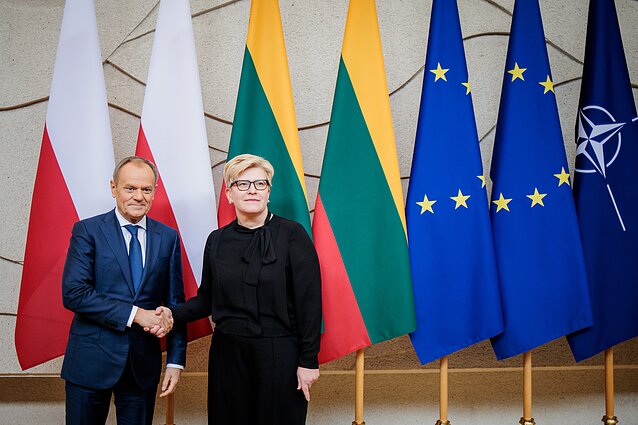Lithuanian Prime Minister Congratulates Poland on Independence Day

On behalf of the Government of the Republic of Lithuania, Prime Minister Ingrida Šimonytė extended heartfelt congratulations to all Poles on Independence Day, wishing them unity and a prosperous future.
“I am pleased that Lithuania and Poland are close allies and strategic partners. The principles of freedom and democracy that unite our nations are our shared strength, a force needed greatly in these challenging times both in Europe and the entire democratic world. Our common history has repeatedly shown that the prosperity of our nations is interconnected, that only united can we be strong, that we understand freedom is not granted, and that we will continue to defend it together as we have many times in the past.
In the face of Russia’s brutal war, we stand united in our unwavering support for Ukraine, which today defends not only the freedom of its citizens but also the future of our countries and the entire democratic world. Ukraine must win, as only then can we be confident in our own future, as well as the future and security of all Europe. We must do everything within our power to make this a reality as soon as possible.
On this significant occasion, I would like to once again wish all Poles peace, prosperity, and well-being. I am confident that the strategic partnership between our countries will grow stronger and that together we will continue to work towards a just and lasting peace, as well as a safe world for future generations,” said the head of government in her greetings.
National Independence Day
National Independence Day is a public holiday in Poland celebrated annually on November 11th to commemorate Poland’s regaining of independence in 1918, after 123 years of partitions (1795–1918).
November 11, 1918, is one of the most important dates in the history of Polish statehood. On this day, Marshal Józef Piłsudski became Commander-in-Chief of the Polish Armed Forces, and in Compiègne, France, an armistice was signed that signified Germany’s defeat in World War I. This agreement was later formalized by the Treaty of Versailles, which created an opportunity for the rebirth of the Polish state after 123 years of partitions. Commemorating this day became the foundation for celebrating Poland’s regained independence. In 1937, the celebration was officially recognized as a national holiday, although prior to that, it had primarily been a military observance. After World War II, the Polish government, entirely dependent on the Soviet Union, abolished the holiday. National Independence Day regained its status in 1989, and since then, representatives of the highest state authorities and thousands of Poles participate in the celebrations.
Source: Lietuvosvalstybe.com
References: Information from LRT

